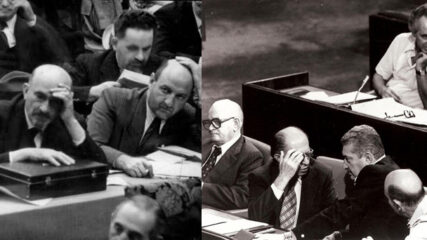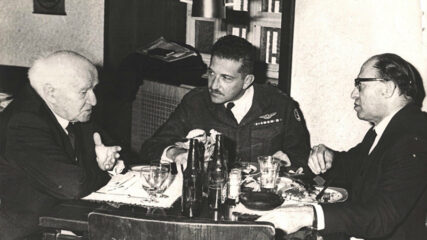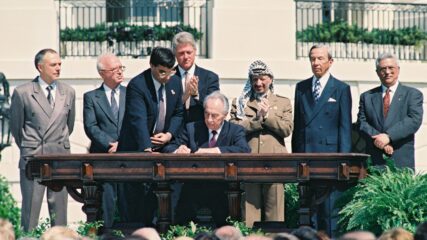9 Key Questions About Theodor Herzl’s “The Jewish State,” February 14, 1896CIE+
Nine questions guide key understandings about Theodor Herzl’s “The Jewish State.”

Nine questions guide key understandings about Theodor Herzl’s “The Jewish State.”

August 10, 2025 Updated August 11, 2025, with follow-up resources. CIE and partners including including Hillels of Georgia, American Jewish Committee, the Jewish Federation of Greater Atlanta’s JTeen initiative, the Anti-Defamation League, the Jewish Community…

March 12, 2025 By Ken Stein The Jewish growth in Mandatory Palestine in the period of the New Yishuv to establish a Jewish territory for a state had significantly developed by 1939. Arab leadership in…
March 5, 2025 The Center for Israel Education is unique because its work is based on Jewish context and otherwise mostly unavailable content. Providing excellence in Israel education through perspective and via multiple platforms separates…

Sung or recited on Passover, the original Dayenu is reflective appreciation of 14 significant events specifically wrapped around the exodus from Egypt. The Dayenu presented here chronicles Jewish history from Exodus to the present day. This history can be read individually or responsively. Different moments and personalities in Jewish history could have been included. Hebrew and Spanish versions of Dayenu are available.

Neither Israel’s political culture nor Israel’s democracy based on Jewish self determination simply materialized on May 15, 1948. A connection exists from Jewish self-rule in the Diaspora to Zionist political autonomy during the Yishuv and to contemporary Israeli political culture. Likewise, the origins of Israeli democracy are found in the hundreds of years of Jewish Diasporas transitioning into the Zionist movement to the state; from aliyot before the Palestine Mandate to 1948 and since. Components of Israeli political culture…

Ken Stein, Emory University, Center for Israel Education, spring 2020 What are turning points or legacy moments in history? That was the focus of my Zoom class at Emory for 80 students in late March…

Four out of every five Jews in the world live in the United States and Israel; 6.3 million in Israel, 6.7 million in the US. According to Pew Research Center Studies, 7 in 10 American Jews feel attached or very attached to Israel.

In two books written sixty years apart, When Prophecy Fails, 1957 (Festinger, Riecken and Schachter) and The Influential Mind, 2017 (Sharot, an Israeli neuroscientist), the conclusions were the same.

In teaching history, the most difficult task remains creating context:catapulting students back into a different time frame and having them disregard their contemporary historical perspective. The goal is to witness history as it unfolded, not as it concluded.

At Seattle’s Temple de Hirsch Congregation a week ago, the audience audibly gasped when I told them that the next day I would be giving a noon talk at Evergreen State College.

In September 2023, thirty years after the historic signing of the Oslo Accords, there is occasion to review Prime Minister Rabin’s understanding of them. I assembled this collection years ago from Daily Reports- Near East and South Asia, 1993-1995. Two short items about Rabin’s views are also found or linked here. Rabin provided a summary of his views of the Accords in a Knesset speech in October 5, 1995. Some of Rabin’s reasons for signing the Accords are also provided in Yehuda Avner’s The Prime Ministers.